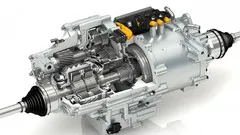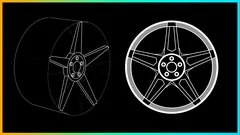
Electric Motor Design for Electric Vehicles - Advanced 
The course "Electric Motor Design for Electric Vehicles - Advanced" is designed to equip participants with comprehensive knowledge and understanding of advanced electric motor design for electric vehicles (EVs). The course begins by exploring the powertrain level targets set by automotive manufacturers for the coming years and their impact on the development of electric motors. Participants will gain insights into CO2 footprint reduction and the driving forces behind electrification. The course delves into various measures adopted by Nissan Motors' research team to enhance electric powertrain performance and efficiency, covering topics such as interior permanent magnet (PM) motors, induction motors, and magnet arrangements. Techniques to reduce rare earth elements in motor magnets and achieve efficiency improvement through physical design changes are also discussed. The course covers lightweight design and manufacturing techniques for EV propulsion motors and their integration within the system. Furthermore, participants will learn about sensitivity analysis and NVH (Noise, Vibration, and Harshness) optimization, and how it affects motor torque and acceleration performance. The course also includes a study of the General Motors Cadillac Hybrid's motor selection strategy and its impact on efficiency. Additionally, participants will explore torque ripple reduction strategies for induction and permanent magnet synchronous motors (PMSM) drives. The course concludes with an in-depth analysis of sensor technology used in electric and hybrid vehicle powertrains, including sensor applications for better control of EVs and HEVs (Hybrid Electric Vehicles). Participants will understand the selection criteria for position sensors, sensor mounting methodologies, and their significance on accuracy. The course provides valuable insights into sensor angle calculation and error definition, comparing peak-to-peak mechanical angle error and illustrating a resolver rotor position signal processing system. ▼
ADVERTISEMENT
Course Feature
![]() Cost:
Cost:
Paid
![]() Provider:
Provider:
Udemy
![]() Certificate:
Certificate:
Paid Certification
![]() Language:
Language:
English
![]() Start Date:
Start Date:
2021-01-11
Course Overview
❗The content presented here is sourced directly from Udemy platform. For comprehensive course details, including enrollment information, simply click on the 'Go to class' link on our website.
Updated in [July 25th, 2023]
The "Electric Motor Design for Electric Vehicles - Advanced" course offers a comprehensive exploration of advanced electric motor design for electric vehicles, aimed at providing participants with in-depth expertise in this specialized field. The course begins with an overview of powertrain level targets set by automotive manufacturers, emphasizing the need for efficient development of E motors to meet upcoming requirements. Participants will gain insights into CO2 footprint reduction and the driving forces fueling electrification in the automotive industry. The course delves into the research team's efforts at Nissan Motors to improve electric powertrain performance and efficiency, covering aspects such as interior PM magnet motors, induction motors, and magnet arrangements. Techniques to reduce rare earth elements in motor magnets and physical design changes for enhanced efficiency are examined. Additionally, participants will explore lightweight design and manufacturing techniques for EV propulsion motors and their integration within the overall system. The course delves into sensitivity analysis and NVH optimization, providing an understanding of their effects on motor torque and acceleration performance. Participants will gain insights into the General Motors Cadillac Hybrid's motor selection strategy and its implications for efficiency. The course further explores the usage profile of induction and PMSM machines in hybrid vehicle applications, focusing on torque ripple reduction strategies. Lastly, participants will explore advanced sensor applications for better control of EVs and HEVs, including criteria for position sensor selection and sensor mounting methodologies. The course concludes with an exemplary illustration of a resolver rotor position signal processing system, providing a comprehensive understanding of advanced sensor technology applied in electric and hybrid vehicle powertrains. By the end of this course, participants will have the expertise to excel in the field of electric motor design for electric vehicles and contribute to the advancement of EV technology.
Course Syllabus
Introduction
Nissan Leaf - Motor Design & Development Case Study
GM Cadillac Hybrid Vehicle - Motor Development Case Study
Case Study on Position Sensors for E Motors of EV's and HEV's
Summary of the Various Motor Technolgies
Course Provider

Provider Udemy's Stats at AZClass
Discussion and Reviews
0.0 (Based on 0 reviews)
Explore Similar Online Courses

API&Web Service Testing using READY-API(SOAP-UI)

REST API Automation with RestSharp & HTTP Client

Python for Informatics: Exploring Information

Social Network Analysis

Introduction to Systematic Review and Meta-Analysis

The Analytics Edge

DCO042 - Python For Informatics

Causal Diagrams: Draw Your Assumptions Before Your Conclusions

Whole genome sequencing of bacterial genomes - tools and applications

Car&Vehicle Rims Design Course : How to Design Car Rims!

DESIGNERS ESSENTIAL (How to sketch cars in any perspective)


Start your review of Electric Motor Design for Electric Vehicles - Advanced